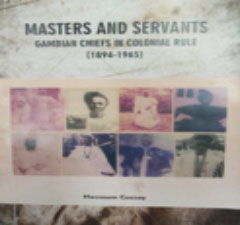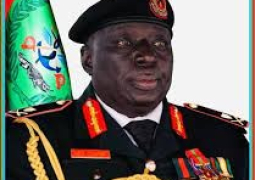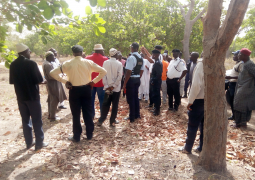
The book available in Timbooktoo is divided into three parts: Part one discusses chiefs in the wider colonial rule context; part two profiles famous Gambian chiefs like Mama Tamba Jammeh (Illiasa); Matarr Ceesay (Upper Saloum); Karamo Kebba Sanneh (Jarra); L.O Sonko (Niumi); Jewru Kruballay (Basse); Yugo Kasse Drammeh (Sandu); Kebba Cham (Kombo North); Abu Khan (Jokadu); Cherno Baldeh (Fulladu); Janko Kinteh (Baddibu); Narkolong Komma and Sader Manneh (Niani) and the likes; while part three brings us raw documents from the archives on the annual chiefs conferences held between 1944 and 1965.
In this study, the author argues that they were the backbone of the protectorate economic set up. To do so, the book examines the role of chiefs as tax collectors; chiefs as agents in the production of groundnuts; and chiefs as proponents of the ‘cottage’ industries in their districts. The study furthers our understanding of the critical African agency in the success of the colonial project in West Africa.
This book furthers understanding of the critical African agency in the success of the colonial project in West Africa, and The Gambia, in particular. Policy issues like empowering district chiefs to be able to undertake critical tasks at the local level are indeed clear in this study.
The premise of the book, therefore twofold: one, that unlike other British colonies in West Africa, colonial rule in The Gambia was anchored largely on the support and loyalty of district chiefs, and not on military might, complex colonial administrative machinery or massive propaganda. Two, that Gambian chiefs expressed keen loyalty to the British throughout the colonial period through confidence building measures like sending their children to school, support to Britain during the two World Wars, mobilising local resources and labour for infrastructure development and by running efficient Native Tribunals and Treasuries which provided the social and fiscal control needed for colonial stability and exploitation. The chiefs also played a role in nationalist politics.
The historian, Hassoum Ceesay, surmises in the book that for over a decade following the onset of the elective principle in Gambian politics in 1947, chiefs, in order to protect their power and influence, stoutly resisted extending the franchise to the Protectorate, and to women. This strengthened colonial rule, and impeded Gambia’s nationalist aspirations. It was only at the 1958 Chiefs’ Conference at Brikama, when chiefs agreed to allow the protectorate to participate in nationalist politics, that universal adult suffrage was introduced, hastening The Gambia’s move towards nationhood. The fact that chiefs were able to hold back nationalist aspirations for such a long time is another indication of the powers they wielded, and their hand in glove ties with the colonial authorities.
His conclusions show that history has a role in answering urgent developmental challenges: ‘As The Gambia enters its Third Republic, chiefs should have a clear and prominent role, especially in issues like dispensing of customary law to help decongest our court systems; optimize tax collection to boost revenues for Area Councils; and intensify fight against anti-environment activities like deforestation and lighting of bush fires. This book provides a useful template towards revitalizing the role and prominence of our districts’ chiefs in national development. If the colonial masters were able to work with chiefs to make a success of their colonial agenda, they why not post-independence governments’ (page 95)?
This book is another great addition to the literature on Gambian history. It is well written, illustrated with statistical tables, maps and photos, and therefore highly recommended to all students of Gambian colonial history.





